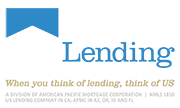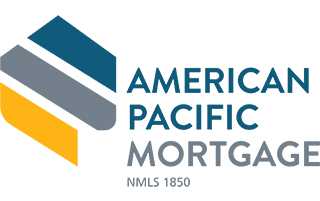Who Pays Closing Costs When It Comes To A Property Sale
During the sale of a home, there are a number of fees and expenses that will need to be paid before the transaction of the property from the seller to the buyer can be made official. These fees and expenses are known as the closing costs. Both the buyer and seller will need to pay certain closing costs before the deal can be finalized. The following is a breakdown of who pays the closing costs between the buyer and the seller.
before the transaction of the property from the seller to the buyer can be made official. These fees and expenses are known as the closing costs. Both the buyer and seller will need to pay certain closing costs before the deal can be finalized. The following is a breakdown of who pays the closing costs between the buyer and the seller.
Common Practice With Closing Costs
Closing costs are referred to as “closing costs” because they need to be paid at the closing of the sale. Any fees and expenses incurred have to be paid at the time of the closing to the appropriate party. You’ll want to know what those fees and expenses will be so that you can bring the funds necessary to pay for that amount. If you’re unable to pay for your closing costs, it could delay the sale of the house. Because some closing costs can be significant, it is possible to transfer the necessary funds to pay for certain fees or expenses a few days before the date of the closing.
Who Can Pay Closing Costs?
Both the buyer and the seller will be responsible for paying certain closing costs at the closing of the sale. The buyer typically has to pay a variety of fees to their lender, while the seller usually has to pay their real estate agent fees.
Can Sellers Pay Closing Costs?
Closing costs can be quite expensive. Although sometimes a buyer can roll what they owe in closing costs into their loan (for example, if you’ve taken out a USDA loan), this is usually not possible. In many cases, they will need to pay for their closing costs out of pocket. One option for a buyer who cannot afford all of their closing costs is to make a deal with the seller. The seller is allowed to pay for the buyer’s closing costs on conventional loans as long as they don’t amount to more than 3 percent of the home’s total price.
Can Closing Costs Be Leveraged for Negotiation?
Getting a seller to actually pay for the buyer’s closing costs is a different matter altogether. If it’s just a matter of paying for a few minor fees or expenses, the seller might be willing to bite the bullet to get the sale done–especially if they are desperate to sell and there aren’t other interested buyers. One thing that a seller can do is to offer to pay for the closing costs if the buyer raises their bid. If their bid is increased by the amount of the closing costs, then essentially, the seller is paying for the closing costs upfront but is immediately paid back when the buyer’s loan comes through. It’s a tricky way of rolling the closing costs into the loan.
The Average Closing Costs For Sellers
Right up front, the seller will have to pay their real estate agent 6 percent (the seller’s real estate agent will often split this fee with the buyer’s agent). The seller will also be responsible for a number of other costs; however, how much depends on several factors, including if they owe any money related to their homeownership and the date on which they are closing the sale. If you’re the seller, the following are a few things that you may have to pay at the closing of your sale:
Title Insurance Premiums
You will need to pay for a title insurance policy that will be issued to the buyer. A title insurance policy helps protect the buyer should anyone step forward and claim that they are entitled to ownership of the house you’re selling. The title insurance premium is a one-time cost.
Transfer Taxes And Recording Fees
You will have to pay your county or local government transfer taxes and recording fees for the transfer of your property’s title. These taxes and fees vary from one location to another.
HOA Dues
You will have to pay any HOA dues that are past due as well as compensate the buyer for any fees they have to pay the HOA for the months before they take ownership. Some HOAs also require a fee for transferring your account to a new owner.
Home Warranty Premiums
Some sellers offer home warranties that cover the repair and replacement cost of major home systems, such as the HVAC system or the plumbing system. By providing a home warranty to the buyer, you help provide peace of mind. Buyers will be less hesitant to make a home purchase (especially where older homes are concerned) if there’s a home warranty. Home warranties typically range from $300 to $600 depending on the coverage.
The Average Closing Costs For Buyers
Closing costs are not cheap when it comes to purchasing a new home. However, they do tend to vary based on a variety of different factors. As the buyer, you should expect your closing costs to amount to roughly 2 to 5 percent of the property’s purchase price. The following is a breakdown of the fees and expenses that a buyer’s closing costs typically consist of:
Attorney Fees
Some homebuyers will use an attorney to review their paperwork. This helps ensure that everything is in order. In some states, an attorney will be required to legally close on a home. Attorney fees usually only amount to a few hundred dollars.
Credit Report Fees
Your lender will need to pull your credit report in order to go over your credit history to determine whether you’re eligible for a home loan. Most credit report fees won’t exceed $35.
Loan Origination Fee
The loan origination fees are the fees that the lender charges for their services. These often include processing and funding fees (which are sometimes listed separately). The loan origination fee typically accounts for the largest of the buyer’s closing costs. Expect to pay between 1 and 2 percent of the purchase prices in loan origination fees. The loan origination fee is one fee that can be negotiated with the lender. In many cases, the lender will be willing to waive some of their fees or to lower them to keep you on as a customer.
Inspection Fees
Lenders will require that the home you’re buying undergo a professional home inspection. This ensures that you’re not buying a property that’s overvalued due to hidden damage or other problems. You may be required to pay for certain pest inspections as well depending on the lender and the type of loan you’re taking out (all government backed loans require pest inspections). Home inspections cost between $200 and $400, while pest inspections cost around $100.
Discount Points
Discount points are optional. They are a fee that you pay to the lender to reduce your loan’s interest rate. One point costs 1 percent of the mortgage amount.
Appraisal Fees
Lenders require an appraisal to ensure that the house isn’t overpriced. They do not want to provide a loan that is being used to overpay for a property since this means it will be much more difficult to recoup their investment should you default on your loan. An official appraisal costs between $300 and $400.
Survey Fees
A survey will need to be performed to identify exactly where the property lines are (so that you know what land is your land). It usually costs around $300 to measure the property lines.
Lender’s Title Insurance
Although the seller typically pays for title insurance that protects you in the event that someone else other than the seller lays claim to the property’s title, you as the buyer will have to pay for title insurance that protects your lender. A lender’s title insurance policy typically costs around $1,000; however, it’s a one-time cost.
Title Search Fees
Besides buying lender’s title insurance, you’ll also have to pay for a title search. A title search is basically a background check on the property’s title to ensure that there aren’t any unpaid liens on the property. Title search fees are usually between $75 and $100.
Escrow Deposit
Most lenders require borrowers to pre-pay a few months worth of property tax and insurance. This money will go into an escrow account. If you put down 20 percent or more on your down payment, there’s a chance that the lender will let you opt out of the escrow deposit. As for how much you’ll have to deposit, your lender should inform you beforehand.
Recording Fees
A new title will need to be created (or “recorded”) at the closing since the old title was in the name of the seller. It generally costs around $15 a page to record a new title.
Underwriting Fees
Your lender will send all of your information and paperwork to a mortgage underwriter. The underwriter will then evaluate everything and check the veracity of the documents and information you’ve provided to determine whether you qualify for the loan. You will have to pay an underwriting fee for this service.
The Type Of Loan Can Affect The Closing Cost
Certain home mortgages require different closing cost fees. For example, VA loans require both the traditional closing costs as well as a VA funding fee; however, if you qualify for a VA loan, you won’t need to make a down payment, which makes paying for these closing costs easier. There are also a number of closing cost fees that the VA does not allow the borrower to pay, including attorney fees, real estate agent commissions, flood zone determination fees, and appraisals requested by anyone other than the borrower or seller. Additionally, sellers are allowed to pay for a buyer’s closing costs up to 4 percent of the purchase price.
With FHA loans, the closing costs will be similar to that of a conventional loan, although the seller is allowed to cover closing costs up to 6 percent of the purchase price. The closing costs on a USDA loan are even more flexible–not only can they be rolled into the loan, but they can be completely paid for by the seller.
How Can Paying Commissions Help You
The seller’s real estate agent usually charges 6 percent of the home purchase price. They will then split that fee with the buyer’s real estate agent. If you can’t afford the closing costs as a buyer, then one option is to come to an agreement with your real estate agent to pay their fee (you could agree to pay it by a later date or to pay it on a payment plan). This, in turn, allows the seller’s agent to charge the seller a lower amount (3 percent). In return, the seller will be able to cover the closing costs for you. It’s a simple adjustment to how payments are usually made to provide you with some flexibility when it comes to paying your closing costs.
Closing Costs Can’t Be Rolled Into Your Next Loan
There are only two ways that you can roll your closing costs into your loan. You can do this if you’ve qualified for a USDA loan and you can do this if you’ve come to an agreement with the seller in which they help pay for the closing costs if you increase your bid to include the amount of those closing costs. If you can’t manage to do either of these, then you’re out of luck. It’s why you should always be prepared to pay for closing costs and why you need to make room for them in your budget.
Don’t Let Surprise Closing Costs Come as a Shock
Knowing who pays the closing costs is important whether you’re the buyer or the seller. Not knowing how much your closing costs will be can be a real issue, especially if you thought that you had properly budgeted for the cost of buying a home. As the seller, you should be able to cover closing costs with the money you make off the sale; however, if you don’t find out what you’ll owe beforehand, it could delay the closing. The same applies to buyers who realize that they don’t have the money to cover the closing costs until it’s too late.
If you’re a homebuyer, study the loan estimate that’s provided by your lender. Loan estimates are legally required and provide borrowers with a detailed breakdown of the closing costs. If you’re the seller, then you need to stay on top of any dues or taxes you might owe on the house. If you are behind, you will have to pay them off before you can close.
The views, articles, postings, and other information listed on this website are personal and do not necessarily represent the opinion or the position of American Pacific Mortgage Corporation or US Lending Company.
* For loan examples and more information visit our disclosure page at https://www.uslendingcompany.com/disclosures/





